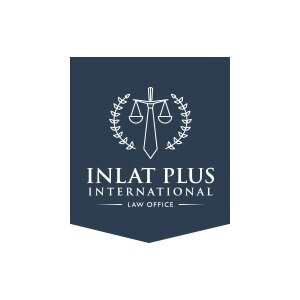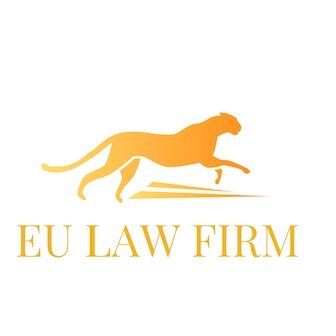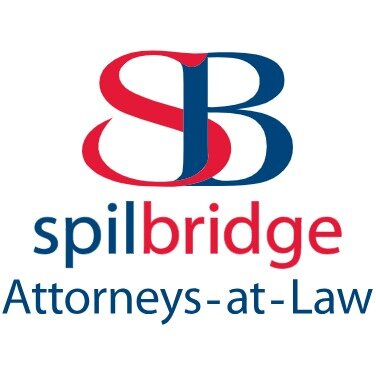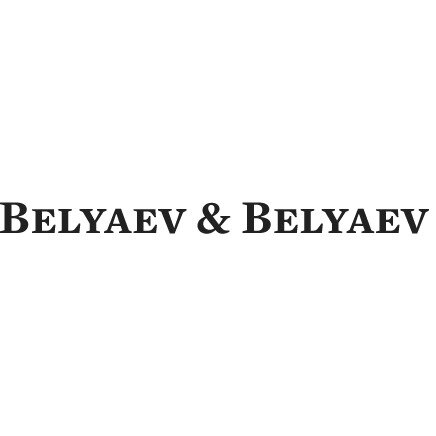Best Franchising Lawyers in Latvia
Share your needs with us, get contacted by law firms.
Free. Takes 2 min.
Or refine your search by selecting a city:
List of the best lawyers in Latvia
About Franchising Law in Latvia
Franchising in Latvia is governed by a combination of European Union regulations and national laws. It involves a contractual agreement between two legally independent parties: the franchisor and the franchisee. The franchisor grants the franchisee the right to operate under its trademark or trade name, with established systems for doing business. This arrangement benefits franchisees who wish to capitalize on an established brand while providing franchisors an opportunity to expand their brand presence without heavy capital expenditure. As the franchise market in Latvia develops, understanding the relevant legal frameworks becomes crucial for potential franchisors and franchisees alike.
Why You May Need a Lawyer
Engaging with a franchising lawyer in Latvia might be crucial in several situations:
- Drafting or Reviewing Franchise Agreements: Legal counsel can ensure that the terms of the agreement are clear, fair, and in compliance with Latvian laws.
- Intellectual Property Rights: Protecting trademarks and other proprietary information is critical in franchising.
- Regulatory Compliance: A lawyer can help ensure that business practices comply with both EU and Latvian regulations.
- Dispute Resolution: In the event of disagreements, having legal representation could facilitate a more favorable outcome.
- Negotiating Terms: Legal advice can assist in negotiating favorable terms in franchise agreements.
Local Laws Overview
Latvian law regarding franchising is primarily guided by principles of contractual freedom, as formalized through the Civil Law of the Republic of Latvia. Some essential aspects include:
- The franchise agreement must clearly define the roles and duties of both franchisor and franchisee.
- A written contract is mandatory, outlining financial obligations, the scope of rights, and duration among other critical aspects.
- There are no specific registration requirements, but adherence to commercial and tax regulations is necessary.
- The Competition Law in Latvia ensures that franchise agreements do not violate fair competition policies.
Frequently Asked Questions
What is the definition of a franchise in Latvia?
A franchise in Latvia is defined by a contractual relationship in which the franchisee gains rights to operate a standardized business model using the franchisor's brand, systems, and support.
Are there specific registration requirements for franchises in Latvia?
No, Latvia does not require franchises to undergo a specific registration process. However, compliance with commercial laws is necessary.
Can foreign entities establish franchises in Latvia?
Yes, foreign franchisors can establish franchises in Latvia, but they must comply with local laws and EU regulations.
What should be included in a franchise agreement according to Latvian law?
A franchise agreement should include clear terms on fees, duration, operational standards, intellectual property, and dispute resolution mechanisms.
What are the regulatory bodies governing franchises in Latvia?
While there isn't a dedicated body for franchises, the Ministry of Economics and the Competition Council are involved in regulating business practices affecting franchises.
Do franchisees have any statutory protections?
Franchisees in Latvia rely on general contractual rights and consumer protection regulations provided under Latvian law.
How are intellectual property rights protected in a franchise relationship?
Intellectual property rights can be protected through appropriate clauses in franchise agreements and adhering to Latvia's Intellectual Property Laws.
Are there tax considerations specific to franchises in Latvia?
Though no tax is specifically for franchises, compliance with corporate taxes, VAT, and other applicable financial regulations is required.
What are the penalties for non-compliance with franchising laws in Latvia?
Non-compliance can result in penalties, contractual disputes, and potential legal action as determined by the relevant Latvian and EU laws.
Can a franchise agreement be modified once it is signed?
Yes, a franchise agreement can be modified provided both parties agree to the changes and such modifications are documented in writing.
Additional Resources
For those seeking further information, consider reaching out to the following resources:
- Ministry of Economics of the Republic of Latvia: Offers insights on business regulations.
- Competition Council: Provides information on fair trade and competition laws.
- Latvian Chamber of Commerce and Industry: A platform for business-related guidance.
- Legal publications and law journals discussing contractual and business law nuances.
Next Steps
If you require legal assistance with franchising in Latvia, consider taking the following steps:
- Define your objectives and clarify any questions or issues you foresee.
- Research legal firms or lawyers in Latvia with expertise in franchising law.
- Schedule consultations to discuss your needs and evaluate potential legal strategies.
- Work closely with your legal advisor to ensure all agreements and operations are legally sound and protect your interests effectively.
Lawzana helps you find the best lawyers and law firms in Latvia through a curated and pre-screened list of qualified legal professionals. Our platform offers rankings and detailed profiles of attorneys and law firms, allowing you to compare based on practice areas, including Franchising, experience, and client feedback.
Each profile includes a description of the firm's areas of practice, client reviews, team members and partners, year of establishment, spoken languages, office locations, contact information, social media presence, and any published articles or resources. Most firms on our platform speak English and are experienced in both local and international legal matters.
Get a quote from top-rated law firms in Latvia — quickly, securely, and without unnecessary hassle.
Disclaimer:
The information provided on this page is for general informational purposes only and does not constitute legal advice. While we strive to ensure the accuracy and relevance of the content, legal information may change over time, and interpretations of the law can vary. You should always consult with a qualified legal professional for advice specific to your situation.
We disclaim all liability for actions taken or not taken based on the content of this page. If you believe any information is incorrect or outdated, please contact us, and we will review and update it where appropriate.
Browse franchising law firms by city in Latvia
Refine your search by selecting a city.
















